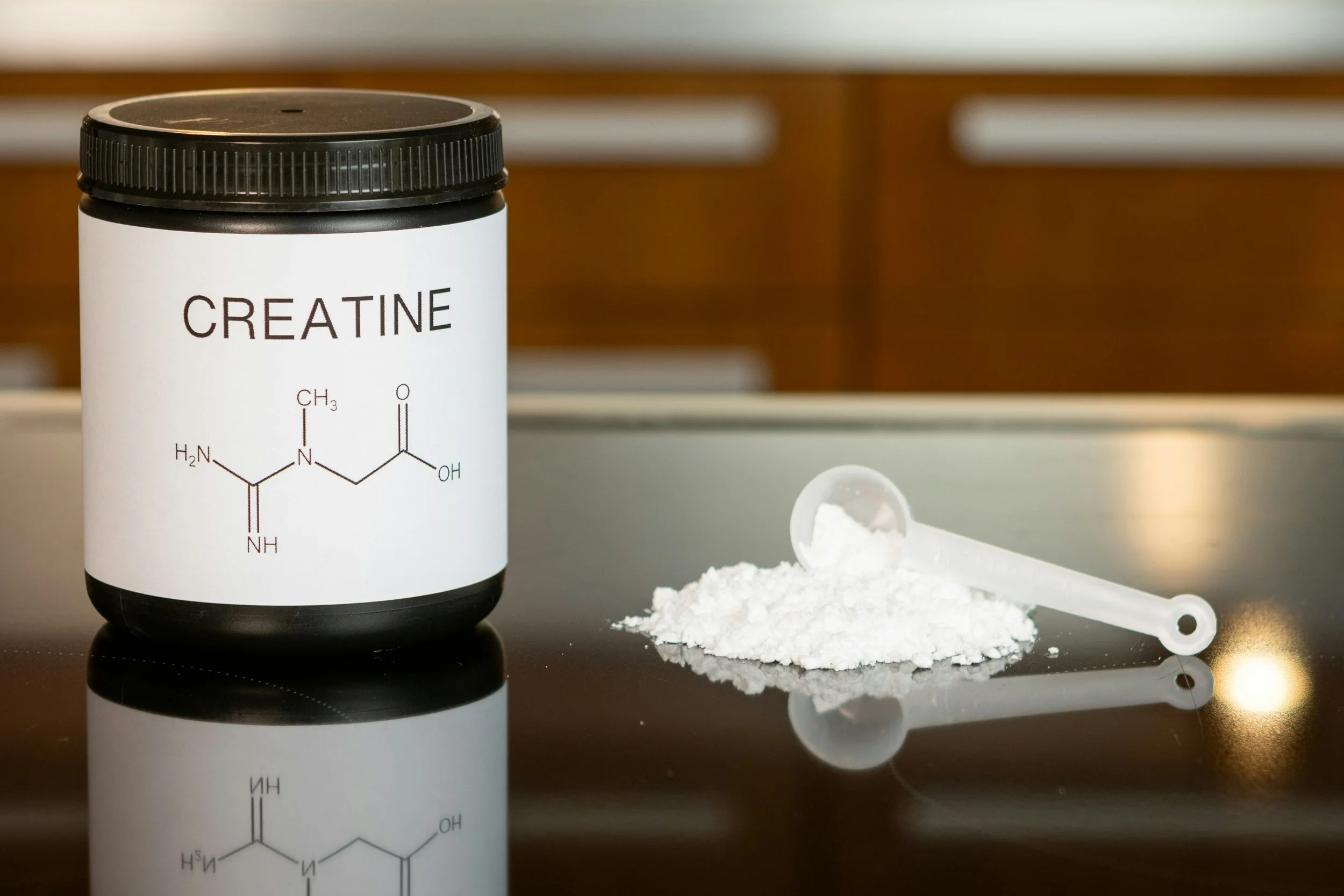Creatine for Endurance Athletes: Unveiling the Science Behind This Popular Supplement
Creatine. The name alone conjures images of bulky weightlifters and explosive sprinting feats. But what about endurance athletes - those who conquer marathons, cycle for hours, and push their bodies to the limit in sustained efforts? Can creatine be a valuable tool in their training arsenal? Let's delve into the science behind this popular supplement and answer this question
Creatine 101: Understanding the Basics
Creatine is a naturally occurring molecule found in muscle tissue and synthesized in the body from the amino acids proline, hydroxyproline, and glycine. It also appears in our diet, primarily in meat and fish. Creatine plays a crucial role in the ATP-PCr system, the body's primary energy source for short, high-intensity bursts of activity – think sprinting, weightlifting, or those explosive hill repeats you incorporate into your training.
Creatine Supplementation: The Protocol Explained
Creatine supplementation involves consuming creatine monohydrate, the most studied and effective form. Some studies suggest consuming creatine supplements in two phases:
Loading Phase (Optional): This involves a higher initial intake (around 20 grams per day) for 5-7 days, divided into 4 doses. This phase aims to rapidly saturate muscle creatine stores.
Maintenance Phase: Once muscles are saturated, a lower daily dose (3-5 grams) is sufficient to maintain these levels.
It's important to note that some research suggests the loading phase might not be necessary, and the maintenance phase can be started directly. Additionally, consuming creatine with a source of carbohydrate and protein may enhance its uptake by muscle cells.
The Science Weighs In: Benefits for Endurance Athletes
While creatine's reputation is built on its impact in high-intensity sports, research suggests potential benefits for endurance athletes as well. Here's what the science tells us:
Ergogenic Effects (Performance Enhancement): Studies show creatine can enhance performance in repeated high-intensity efforts lasting less than 150 seconds – activities that endurance athletes might encounter during high-intensity interval training (HIIT) sessions or race surges.
Building a Stronger Foundation: Creatine supplementation can contribute to gains in lean muscle mass, muscular strength, and power. This translates to a stronger foundation for endurance training, potentially improving efficiency and reducing fatigue.
Beyond the Immediate: Creatine might also influence training adaptation and recovery. Studies suggest enhanced training responses, reduced muscle soreness after strenuous workouts, and improved cognitive function with creatine use.
Women’s Health Benefits: In women, supplementation with creatine monohydrate can improve exercise and strength capacity, and increase muscle mass alongside resistance training. Creatine supplementation may also improve bone mineral density in postmenopausal women.
Are There Any Downsides?
Creatine is generally considered safe and well-tolerated by healthy individuals. However, some people might experience mild gastrointestinal discomfort, especially during the loading phase. It's crucial to choose a reputable brand offering third-party tested creatine monohydrate to ensure quality and safety.
The Endurance Athlete's Takeaways
Creatine monohydrate supplementation can provide benefits for sports requiring short bursts of activity, such as sprinting or weightlifting, and can contribute to gains in lean mass and strength.
It may also enhance response to training, and improve recovery and cognition.
Creatine monohydrate has specific benefits for women’s health, like improved bone mineral density.
Just as with any other supplement, make sure your creatine monohydrate supplement is third-party tested and try it out in training well before your athletic event.
If you want to learn more about creatine, or other supplements that might benefit your endurance performance, a registered sports dietitian (like me!) can provide a wealth of information and guidance.


